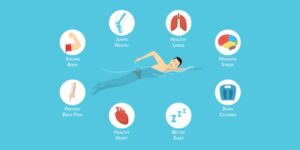How to Save Money Without Using a Credit Card: A Simple Guide to Financial Freedom

How to Save Money Without Using a Credit Card: A Simple Guide to Financial Freedom

In today’s world, many people rely on credit cards to manage their finances. But what if you want to save money without using a credit card? Is it possible? The answer is yes! With a little planning and discipline, you can achieve financial freedom without relying on plastic. This article will show you how to save money, avoid debt, and live a stress-free financial life—all without a credit card.
Why Avoid Credit Cards?
Credit cards can be helpful, but they often lead to overspending and debt. High interest rates, hidden fees, and the temptation to buy things you don’t need can make credit cards a financial trap. By avoiding credit cards, you can:
- Avoid Debt: No credit card means no risk of accumulating high-interest debt.
- Spend Wisely: You’ll only spend money you actually have.
- Build Savings: Without credit card payments, you can save more for the future.
Now, let’s dive into practical steps to save money without using a credit card.
1. Create a Budget and Stick to It
The first step to saving money is knowing where your money goes. A budget helps you track your income and expenses. Here’s how to create one:
- List Your Income: Write down how much money you earn each month.
- Track Your Expenses: Write down everything you spend money on, from rent to groceries to entertainment.
- Set Limits: Decide how much you can spend in each category and stick to it.
By following a budget, you’ll avoid unnecessary spending and have more money to save.
2. Use Cash or a Debit Card
Instead of using a credit card, use cash or a debit card. This way, you only spend money you actually have. Here’s why this works:
- No Overspending: When you use cash, you can’t spend more than what’s in your wallet.
- Better Awareness: Paying with cash makes you more aware of how much you’re spending.
If you prefer using a card, a debit card linked to your bank account is a great alternative. It works like cash but is more convenient for online purchases.
3. Build an Emergency Fund
An emergency fund is money set aside for unexpected expenses, like car repairs or medical bills. Without a credit card, an emergency fund is even more important. Here’s how to build one:
- Start Small: Save a little money each month, even if it’s just $20.
- Set a Goal: Aim to save at least 3-6 months’ worth of living expenses.
- Keep It Separate: Store your emergency fund in a separate savings account.
Having an emergency fund will give you peace of mind and help you avoid borrowing money in a crisis.
4. Cut Unnecessary Expenses
Take a close look at your spending habits and identify areas where you can cut back. For example:
- Cancel Subscriptions: Do you really need all those streaming services or gym memberships?
- Cook at Home: Eating out can be expensive. Cooking at home saves money and is often healthier.
- Shop Smart: Look for sales, use coupons, and buy generic brands instead of name brands.
By cutting unnecessary expenses, you’ll have more money to save or invest.
5. Save Automatically
One of the easiest ways to save money is to automate it. Set up automatic transfers from your checking account to your savings account each month. This way, you’ll save money without even thinking about it. Here’s how:
- Start Small: Even $50 a month can add up over time.
- Increase Over Time: As your income grows, increase the amount you save.
Automating your savings ensures that you prioritize saving over spending.
6. Avoid Impulse Buying
Impulse buying is one of the biggest reasons people overspend. To avoid it:
- Make a Shopping List: Stick to your list when you go shopping.
- Wait 24 Hours: Before making a big purchase, wait a day to see if you really need it.
- Unsubscribe from Emails: Retailers often send tempting offers. Unsubscribe to avoid the temptation.
By avoiding impulse buys, you’ll save money and make smarter financial decisions.
7. Use Free or Low-Cost Alternatives
There are many free or low-cost alternatives to expensive products and services. For example:
- Entertainment: Instead of going to the movies, watch free videos online or borrow DVDs from the library.
- Fitness: Instead of a gym membership, go for a run or do home workouts.
- Learning: Instead of expensive courses, use free online resources like YouTube or Khan Academy.
By choosing free or low-cost options, you can enjoy life without breaking the bank.
8. Pay Off Debt
If you already have debt, focus on paying it off as quickly as possible. Here’s how:
- List Your Debts: Write down all your debts, including the amount and interest rate.
- Pay More Than the Minimum: Paying more than the minimum payment will help you pay off debt faster.
- Use the Snowball Method: Pay off the smallest debt first, then move on to the next one.
Paying off debt will free up more money for saving and investing.
9. Earn Extra Income
If you’re struggling to save money, consider earning extra income. Here are some ideas:
- Freelancing: Offer your skills online, such as writing, graphic design, or tutoring.
- Sell Unused Items: Sell old clothes, electronics, or furniture you no longer need.
- Part-Time Job: Take on a part-time job or gig work, like driving for a rideshare service.
Extra income can help you reach your savings goals faster.
10. Stay Motivated
Saving money without a credit card requires discipline and patience. Here are some tips to stay motivated:
- Set Goals: Whether it’s saving for a vacation or buying a house, having a goal will keep you focused.
- Celebrate Milestones: Reward yourself when you reach a savings milestone.
- Track Your Progress: Use a savings tracker to see how far you’ve come.
Remember, every small step counts toward your financial freedom.
Conclusion
Saving money without using a credit card is not only possible but also empowering. By creating a budget, using cash, building an emergency fund, and cutting unnecessary expenses, you can take control of your finances and avoid debt. With discipline and determination, you can achieve financial freedom and live a stress-free life.
Start today, and take the first step toward a brighter financial future—without relying on a credit card!







